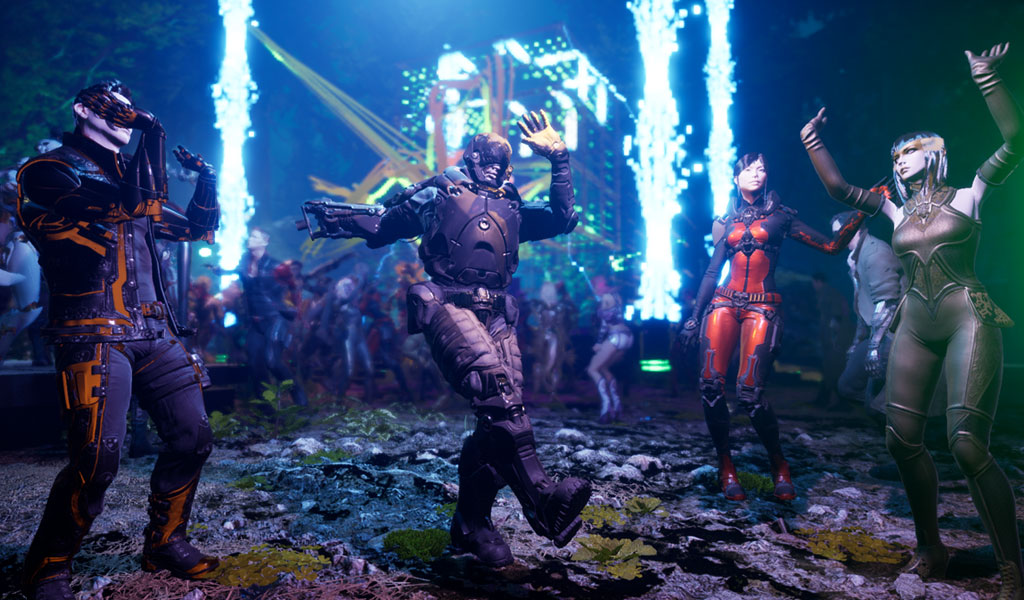Protocol: Amid COVID-19 shutdowns, the music business is giving VR another try

Los Angeles-based startup Redpill VR is taking things even further. The company has been working on an immersive platform that turns music festivals into magical forests full of glowing orbs and floating bubbles that attendees can explore freely with their avatars. Focused primarily on DJ events, Redpill has also been scanning performers to turn them into high-resolution 3D avatars, which can be controlled with sensors strapped to a DJ’s body.
But Redpill VR isn’t just about virtual spaces. The company recently turned a 5,500-square-foot space on Sunset Boulevard into a studio capable of hosting events with up to 200 people. The goal of the facility, which was slated to open right before COVID hit, is to trial a unique combination of live, in-person events and VR livestreams. To make the experience worthwhile for both, the company added a 144-square-foot 3D LED wall, capable of showing the same immersive graphics that VR viewers tuning in from afar get to see in their headsets.
“You are performing in the physical world and in the digital world at the same time,” said Redpill VR CEO Laurent Scallie. “You can get the best of both worlds.”
Scallie, who has been working on a variety of VR technologies for more than two decades, readily admitted that the medium may not be able to compete with traditional livestreaming or gaming platforms just yet. However, he suggested that next-generation headsets and high-resolution content streamed via technologies like 5G could change that in the not-too-distant future. “We’re probably a couple years away from the iPhone moment of VR,” he said.
At that point, VR could become a key part of how we consume live music, and a way to deal with the ever-increasing costs of festivals and other live events.
“Reality will become luxury,” Scallie said, arguing that people may only go out to consume live music two or three times a year. “The rest of the time, it comes to you,” he said.


